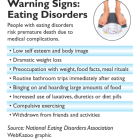Autism Diagnosis
Yale Searching For More Objective Way To Diagnose Autism
|
Getting an autism diagnosis can take months, even years of doctor’s visits, and the diagnosis depends largely on watching a child play. As a result, who gets put on the spectrum and who doesn’t can depend on who and where the doctor is. “Your likelihood of receiving an autism diagnosis, unfortunately, is very much dependent on where you live and which clinic you’re able to get to—if you’re able to get to a clinic at all,” said Alison Singer, president of the Autism Science Foundation, an advocacy group that supports autism research. Activists like Singer have been trying to address this lack of consistency for years. But science has worked against them.

